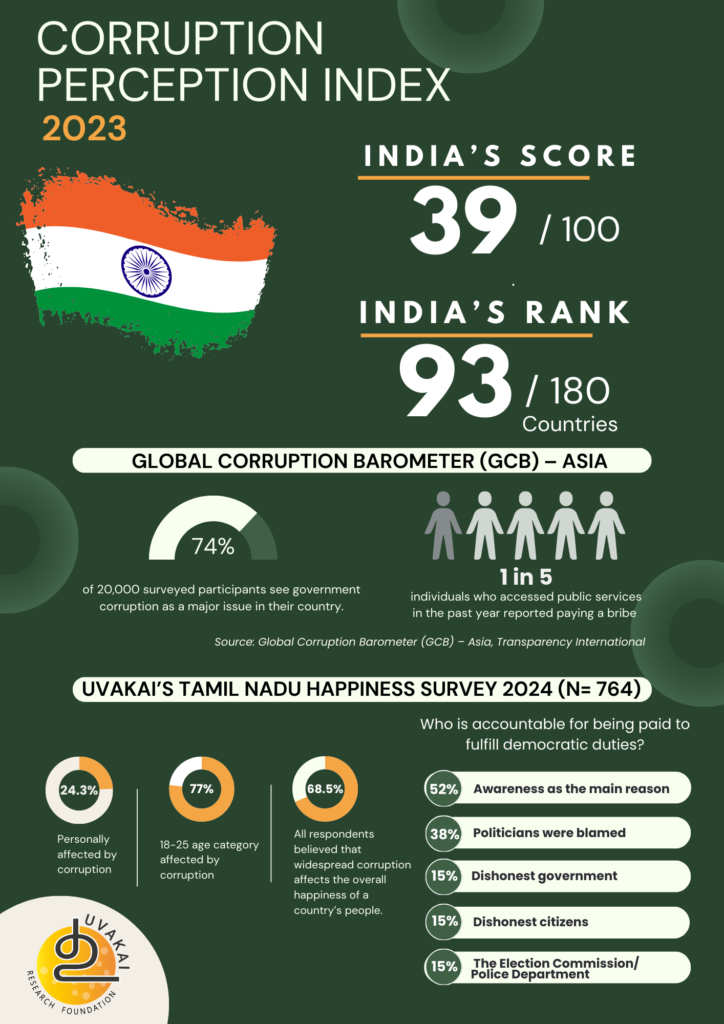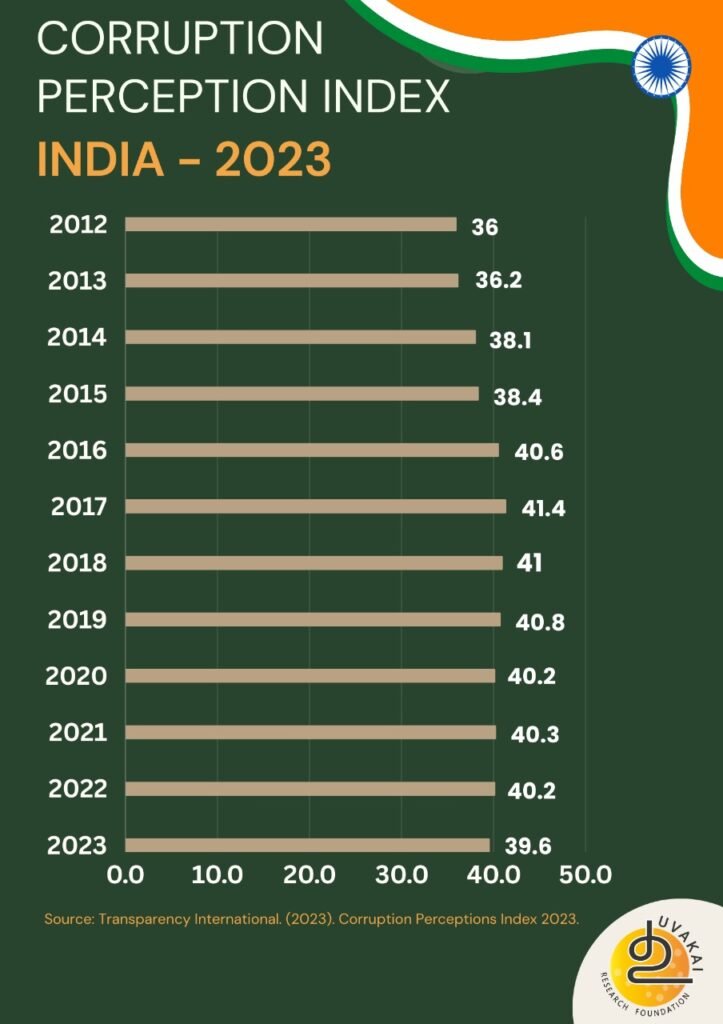

The Corruption Perception Index (CPI) for India from 2012 to 2023 reveals a fluctuating yet generally worsening trend in perceived public sector corruption. Higher CPI scores indicate higher levels of perceived corruption.From 2012 to 2014, India’s CPI score rose from 36 to 38.1, indicating an increase in perceived corruption. This upward trend continued from 2015 to 2017, with scores climbing from 38.4 to 41.4. Minor fluctuations occurred between 2018 and 2019, with scores slightly decreasing from 41 to 40.8. Scores remained relatively stable from 2020 to 2021, with a slight decrease to 40.2 in 2020 and a small increase to 40.3 in 2021. From 2022 to 2023, scores stabilized at 40.2 and then decreased slightly to 39.6, indicating a slight improvement in the perception of corruption. Further exploration is needed to determine if any anti-corruption measures or digitalization in governance have contributed to these changes.According to the latest Global Corruption Barometer (GCB) – Asia, 74% of the 20,000 survey participants view government corruption as a significant issue in their country, and 1 in 5 individuals who accessed public services in the past year reported paying a bribe
.In March 2024, Uvakai Research Foundation conducted an online survey in Tamil Nadu with 764 participants to explore the effects of bribery and corruption on personal and national happiness. The survey revealed that 24.3% of respondents were personally affected by corruption, which negatively impacted their happiness. Notably, 77% of the participants were in the 18-25 age category, highlighting a concerning trend that one in four young individuals had encountered corruption. Additionally, 68.5% of all respondents believed that widespread corruption affects the overall happiness of a country’s people. The survey also examined why people accept money for votes, revealing that 52% cited a lack of awareness as the main reason. Politicians were blamed by 38%, while 15% each pointed to a dishonest government, dishonest citizens, and the Election Commission/Police Department. Only 1% chose not to comment. These findings underscore the need for public education, political accountability, and institutional integrity to combat vote buying.Addressing the root causes of corruption and vote buying is crucial for improving both personal and national well-being, fostering a more transparent and happier society.
